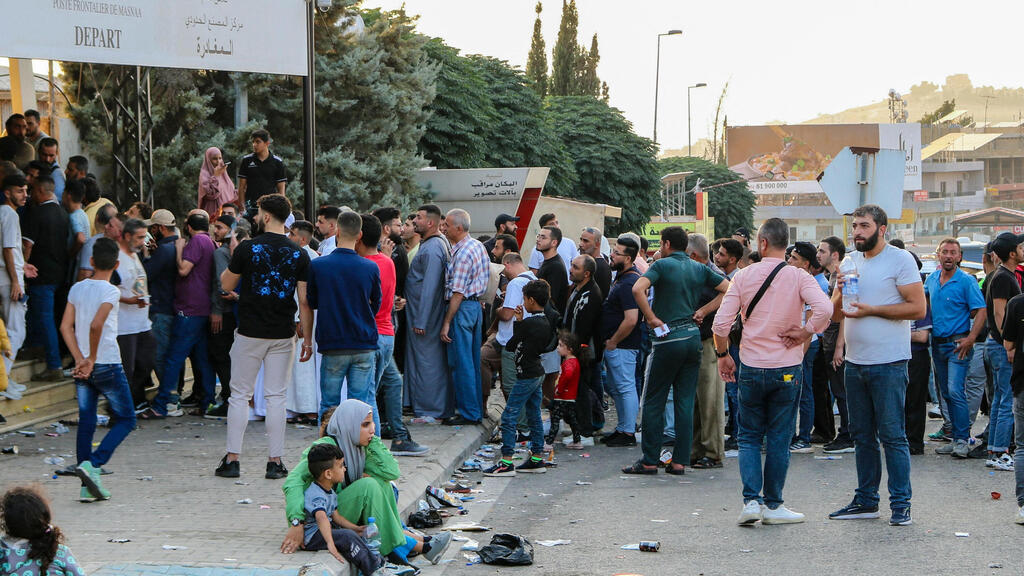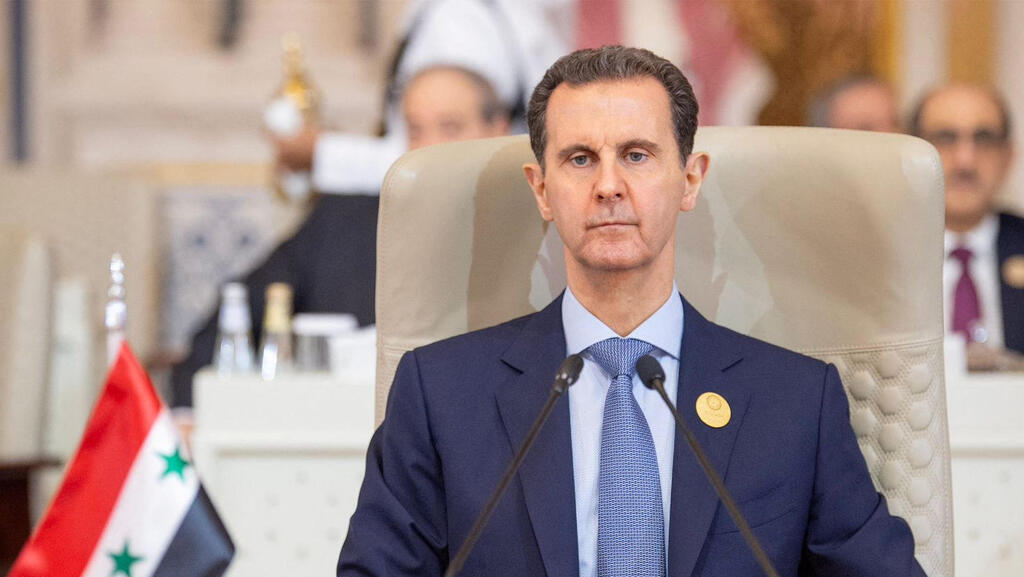Getting your Trinity Audio player ready...
Syrians celebrate the killing of Hassan Nasrallah
Long lines move slowly toward the Masnaa border crossing between Lebanon and Syria as Syrian civilians try to make their way out of Lebanon's war with Israel. It costs $100 for anyone over 18 to cross, children are free. 17-year-old Shatilah describes how her father begged the Syrian border officials to agree to only half that sum because it was all he had.
Those crossing are mainly women and children. Syrian men between 16 and 35 years of age, do not enter Syria, fearing being sent to military training camps. The regime called them to come home but did not elaborate on the fate that awaited them.
There is a slow evacuation of Syrian refugees, who escaped their own country in recent months or the past year or two ago, fleeing Israeli attacks and the abuse of the Syria regime.
Syrian soldiers board the buses on the border and search them, pulling people out for more intensive investigations before instructing the driver to continue on to Damascus where more searches and questioning will take place.
Buses heading to Idlib, carry those identified as supporters of the opposition to Assad and they will remain in the city which is surrounded by government troops, and will be unable to leave. Their names are registered and they will face their punishment later, according to Adalah, a 20-year-old Syrian who said that was why he intended to stay on the Lebanese side of the border.
Some 1.5 Syrian refugees were in Lebanon. A staggering figure for a country with a population of just 5 million. They were willing to do any work, for any pay, just to survive.
When the exodus from South Lebanon began, and the IDF dropped leaflets warning of the pending attacks, the Syrians packed up quickly. They did not decide to go home. It was the decision of the Lebanese government.
Syrian President Hafez al Assad remains in his secluded palace overlooking Damascus. He's heard the rumors that his brother Mahr was killed in an Israeli strike on his home where he hosted senior Iranian military officials. He commands the Syrian military's 4th division but is also in charge of the security detail that protects the president. He also maintains strong ties to his counterpart in Iran.
Assad has not uttered one public word since Israel assassinated Hezbollah leader Hassan Nasrallah, whom he admired. The messages of condolence from the Syrian regime were tepid.
Assad's wife Asma is fighting cancer again and may be in Russia for treatments and his mistress was killed in mysterious circumstances last July, probably at the hands of Iran, shortly before escaping to Russia.
He remains silent although his country is often under attack from Israel, targeting Iranian assets. Senior Syrian leadership meets daily, according to local media reports, but nothing comes out and no special security measures are announced.
Assad's guards urged him to go underground with two of his children, as Iran's supreme leader had done.






